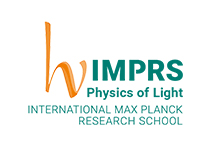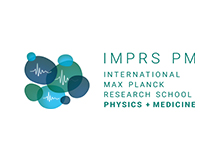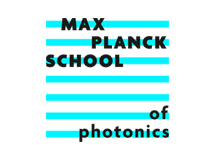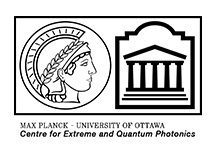Dresden Excellence Award for Maik Herbig
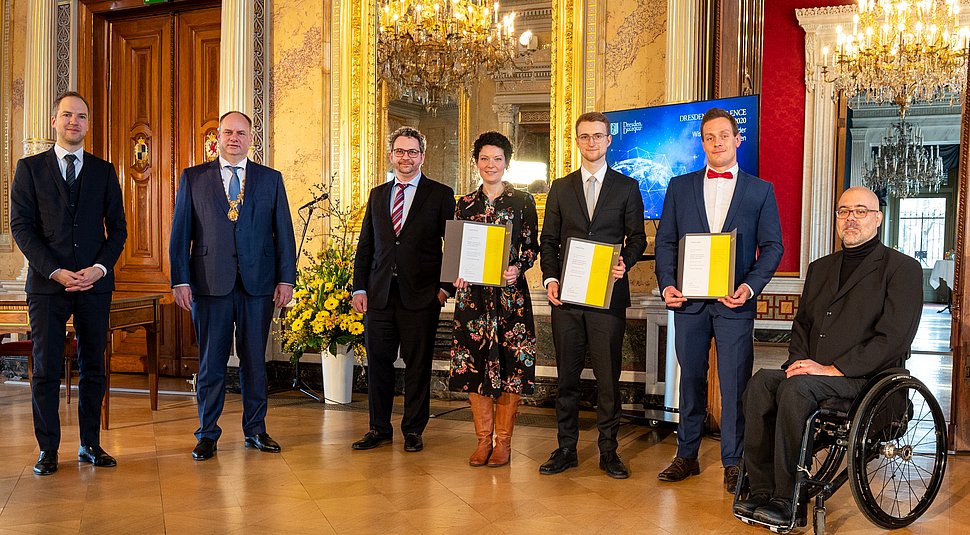
Photo: Jürgen Männel
The city of Dresden awarded Maik Herbig, former PhD student of MPL Director Jochen Guck, the Dresden Excellence Award 2020 for his doctorate. The Saxon capital, together with the network "Dresden - City of Science", honors with the prize annually four scientists for their excellent final theses.
In his doctoral thesis in physics on "Real-time image-based cell identification", Maik Herbig deals with the identification of different cell types. This is an indispensable part of biomedical research. However, the staining processes required for this are lengthy, costly and can contaminate the samples. Herbig's work explores a promising alternative, the label-free identification of cells by mechanical or morphological properties. The jury considers this work a revolutionary approach and awarded it the best scientific achievement. The developed technology is already offered by Zellmechanik Dresden, a spin-off of the chair at the Technical University of Dresden.
In his laudation, Jochen Guck, Director at the Max Planck Institute for the Science of Light and Herbig's doctoral supervisor, emphasised: "After all, the prize is about excellence. On the one hand, Maik had an excellent environment during his doctorate; located between the two Clusters of Excellence CeTi and Physics of Life at TU Dresden, he naturally had the best conditions for groundbreaking research. But that alone is not enough, of course; others have that environment, too. No, excellent research also requires a special personality. And Maik is special." Herbig, who initially did not pursue a doctorate at all, was employed as a technician in Guck's group and carried out measurements with the innovative high-throughput cell measurement method. When, after two years, he had collected several hundred million measurement data of individual cells, his interest was aroused to tackle a doctoral thesis in the field of Big Data and Artificial Intelligence on this basis. Jochen Guck: "Maik independently taught himself the rapidly developing methods of machine learning and AI, applied them to our data and was thus able to establish completely new possibilities for cell characterisation and sorting. During this time, he published a total of 25 papers as author and co-author. That is an unimaginably large number for a doctoral student. The doctorate with the title summa cum laude was only a logical consequence. Considering the award's objective of honouring particularly committed applicants and application-oriented work, I think the jury has found a very worthy candidate in Maik."
Dresden's mayor and jury chairman Dirk Hilbert addressed the award winners: "The agile times we are currently experiencing have spurred interest in science worldwide. All hopes are pinned on the people working internationally to take the terror out of the virus and give us back our normal lives. Research has never been more in demand. The expectations are huge. The achievements are impressive. Meanwhile, the general public also understands much better how research works - and that correction is not a flaw. New findings lead to new steps. New steps lead to new questions. For you, dear prizewinners, these working methods are part of your everyday life. With your work, you are very close to the important questions of our time and have already achieved something outstanding. I would not only like to congratulate you on this, but I would also like to thank you for it. Your work is not only particularly relevant for science and the future of our society. They are also important for Dresden as a science location."
In addition to Maik Herbig, Katja Akgün was awarded for her habilitation, Miloš Tišma for his Master's thesis and Vincent Schiller for his Bachelor's thesis. Central criteria in the jury's decisions for the four award winners were relevance to research and future orientation for the development of Dresden's urban society. Robert Franke, Head of the Office for Economic Development: "Whether new treatment approaches in the fight against multiple sclerosis, the revolutionary identification of cell types, basic research against antibiotic resistance or the playful support for learning programming languages: All the award-winning work has practical application references and high value for our lives - today and in the future."
Contact
Edda Fischer
Head of Communication and Marketing
Telefon: 09131 7133 805
MPLpresse@mpl.mpg.de



